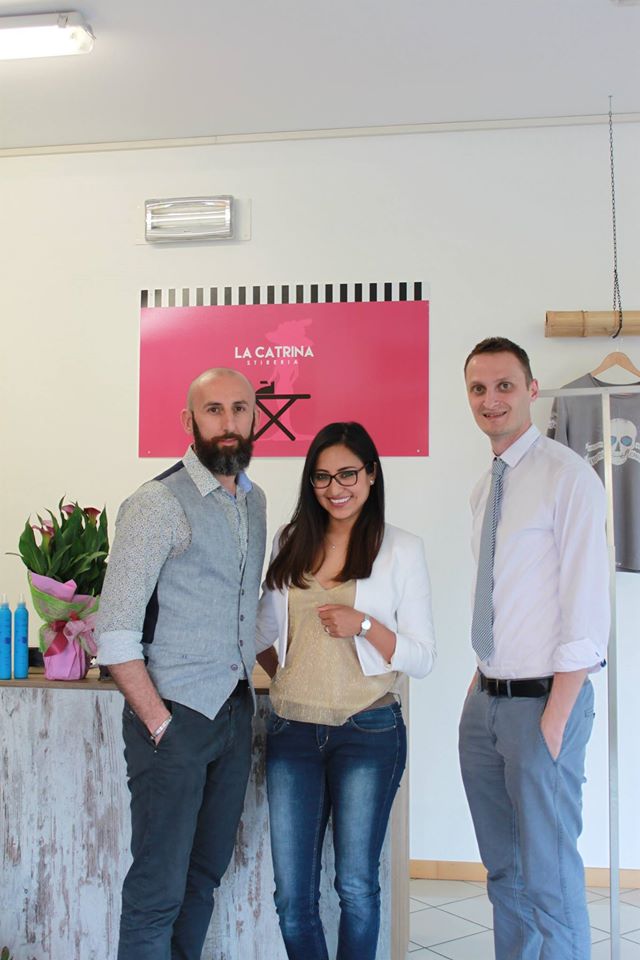Women, migrants and the young get support for their businesses from an EU-backed programme
Cristina Téllez Velázquez left her native Mexico to marry her Italian husband Luigi. It was hard for Cristina to find work in her new home because she couldn’t speak Italian. So she figured out something she could do that few others in the Veneto region did for money—ironing. Then she looked for funds to open a shop.
She went to the Mestre office of PerMicro, a microfinance provider, with a precise business idea. She would open her shop in Istrana, near Treviso, offering a quality, low-cost, time-saving service. With a EUR 20,000 loan from PerMicro, she opened La Catrina Ironing in spring 2016 and her sales have been good.
“I plan to buy two additional tumble-dryers by the end of the year,” she says. “I also hope to hire additional employees and open new shops in nearby towns.”
With EUR 23 million in loans last year, PerMicro supports young entrepreneurs who are often excluded from traditional banks. PerMicro gives them loans ranging from EUR 3,000 to EUR 25,000—vital in a country where youth unemployment is 44 percent. PerMicro also supports families in need with loans ranging from EUR 1 500 up to EUR 10 000. Its loans are supported by an EU programme designed to boost social inclusion and create sustainable employment for often-excluded groups.

- Téllez with husband Luigi (left) and PerMicro's Guerra
PerMicro’s part in Italy microfinance
“It takes between 12 and 30 months before PerMicro’s customers are successful in their activity,” says Monica Bertola, business development manager for PerMicro, which has expanded to 14 cities in 11 Italian regions since its founding in Turin in 2007.
The significance of PerMicro is evident from a study by Rete Italiana di Microfinanza, which showed that in 2014 EUR 30 million was paid out for microcredit. The number of active clients rose 42 percent over the previous year. The study found typical microcredit clients are usually those excluded from the traditional banking system, in particular migrants, women, and people with dependent family members.
Micro means finding a niche
At PerMicro Stefano Guerra, who heads the company’s eastern Veneto region, was convinced of her chances right away. “Professional ironing shops are a very common business in the Lombardia region, whereas in Veneto there are still very few. They represent a niche market. Cristina’s activity is also innovative since she offers specific services, including home collection and delivery.”
Guerra notes that Téllez is building her business through new online marketing opportunities. “She is extremely active on social networks.”
An EU programme for inclusion
Téllez meets her PerMicro mentor Braha Neraida regularly in her shop and talks to her daily. “Neraida was extremely helpful especially in setting up the activity. When I arrived in Italy I had language issues and she helped me to make my way through the intricate jungle of Italian bureaucracy and administration.”
Her project is backed by the European Commission's called the Employment and Social Innovation programme. The programme promotes sustainable employment, fights social exclusion and poverty, and improves working conditions. It's implemented by the European Investment Fund through local financial intermediaries, like PerMicro. At the end of 2015, the EIF had signed 10 microfinance deals and one social entrepreneurship agreement totalling EUR 27.2 million with intermediaries in Italy, Ireland, France, the Netherlands, Poland, Romania, Spain and the UK.
Thanks to its collaboration with the EIF that PerMicro can support small entrepreneurs like Téllez. “Their stories, just like Cristina’s, are simple but meaningful,” says PerMicro’s Guerra. “They address inclusion and finding their own space in society.”
They also iron out the creases in your shirts.
